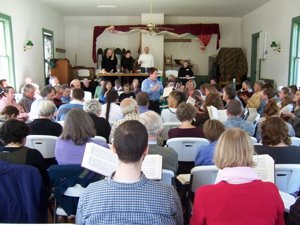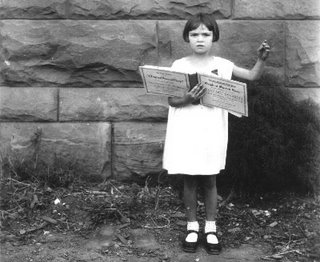Telling the stories and singing the songs
As I write this, Only Son and I are listening to a rebroadcast of Game 7 of the 1991 World Series between the Minnesota Twins and Atlanta Braves. The Twins are changing radio broadcasters this year, and the new station has been airing back-to-back all 14 games of the 1987 and 1991 World Series (with 30-second commercial breaks between innings instead of the usual 2 minutes). We've resisted listening round-the-clock (it is Christmas, after all), but we've been listening to this game from the first pitch.
Any of you who are real baseball fans will remember this game, and the series -- many believe it was the best game of the best World Series ever. The score was 0-0 through ten innings. Each team had opportunities to score but couldn't, sometimes because of spectacular fielding plays, once by an inexplicable base-running mistake. Twice late in the game each team had bases loaded with one out but hit into a double play. It was close and it was exciting.
Even though I know how the game "turned out," I'm on pins and needles. Many details I'd forgotten are coming back anew, brought out by the real-time radio announcers describing the game and the sound of the roaring crowd's surge and gasps. The fact that I know who won isn't taking away the experience of the game at all, and it really isn't the point.
Listening together with Only Son makes a difference. He was only five months old when the game was played, asleep in his mother's arms for most of it, except for being startled every couple of innings at some exciting play or another. We've reminisced about the game before, and have heard highlights of it, but this time we're listening to it together, pitch by pitch, inning by inning.
But the point of this post isn't about baseball, it's about Christmas. I know how that story turns out, too, but I never tire of retelling it, or of hearing it told. It always is alive for me, always fresh, always teaching something new, something deeper, something hidden that I'd missed before.
It's like this for all the important stories. It isn't how the story "turns out" that matters. The importance is in the telling, especially the retelling together in community where all listen together.
Here's one new insight I picked up this year. As the children get older, I've been reading more of the prophets during our Advent Sunday evenings in addition to the Matthew and Luke pasages. This year, I reached a few verses back from the Peaceable Kingdom passage of Isaiah 11 and it was like unwrapping a gift. Here's how that chapter starts:
There shall come forth a shoot from the stump of Jesse,I love the spirits that rest upon the branch of Jesse, and the promise to "decide with equity for the meek of the earth." To a lawyer, this is a striking passage. The coming Messiah will not necessarily be even-handed in his application of the Law, deciding for the little guy only when the Law is on his side; the text says that he will decide for the meek, which either means that the Law is always on the side of the meek, or that the Law isn't a neutral set of principles after all but is a tool or weapon for righteousness.
A branch shall grow out of his roots.
And the spirit of the Lord shall rest upon him,
The spirit of wisdom and understanding,
The spirit of counsel and might,
The spirit of knowledge and the fear of the Lord.
And his delight shall be in the fear of the Lord.
He shall not judge by what his eyes see,
or decide by what his ears hear;
but with righteousness he shall judge the poor
and decide with equity for the meek of the earth.;
and he shall smite the earth with the rod of his mouth
and with the breath of his lips he shall slay the wicked.
Righteousness shall be the girdle of his waist,
and faithfulness the girdle of his loins.
And what is this about smiting the earth with the rod and slaying the wicked with his mouth and breath of his lips? And the girdles? These are amazing images, to me, and helps me understand "the fear of the Lord" in a new way.
I don't intend to meditate on the passage just now, but just to mention how telling the same story again can open new doors of understanding.
(As I was typing the last sentence, Gene Larkin hit in the winning run and the Twins won 1-0.)
I had first heard of the incident from John McCutcheon's song Christmas in the Trenches, and again in an NPR interview with one of the last survivors of the events. (Apparently, in real life this happened at more than one place along the front. Also, a certain corporal Hitler was disgusted when he learned what happened and refused to participate.) The thing that Joyeux Noel and Christmas in the Trenches have most in common was that it was the soldiers' singing that started everything.
This does not surprise me. Singing the old songs again is a lot like retelling the old stories. It keeps alive a common memory over time, like passing a bit of genetic material from generation to generation. If singing could encourage soldiers to lay their arms down once, it can do so again.















